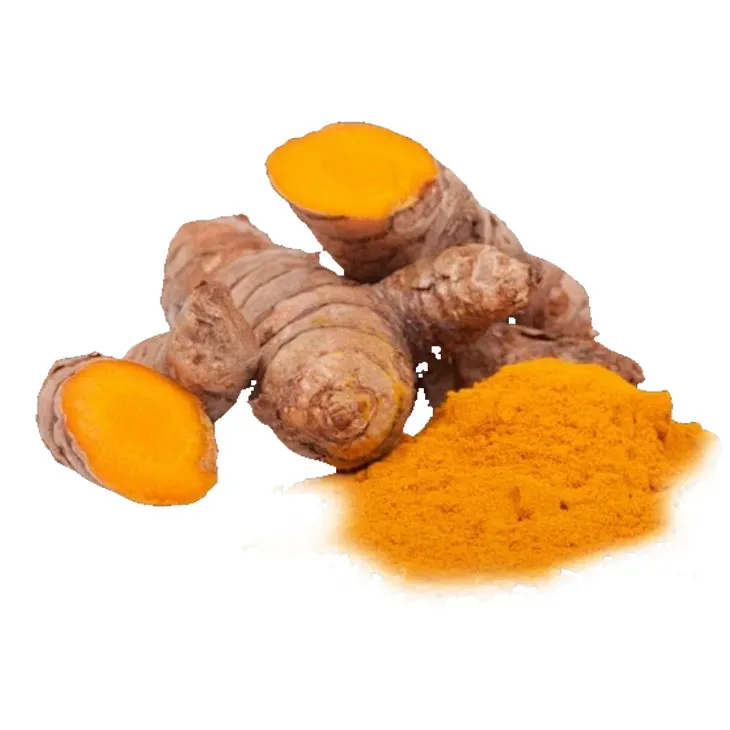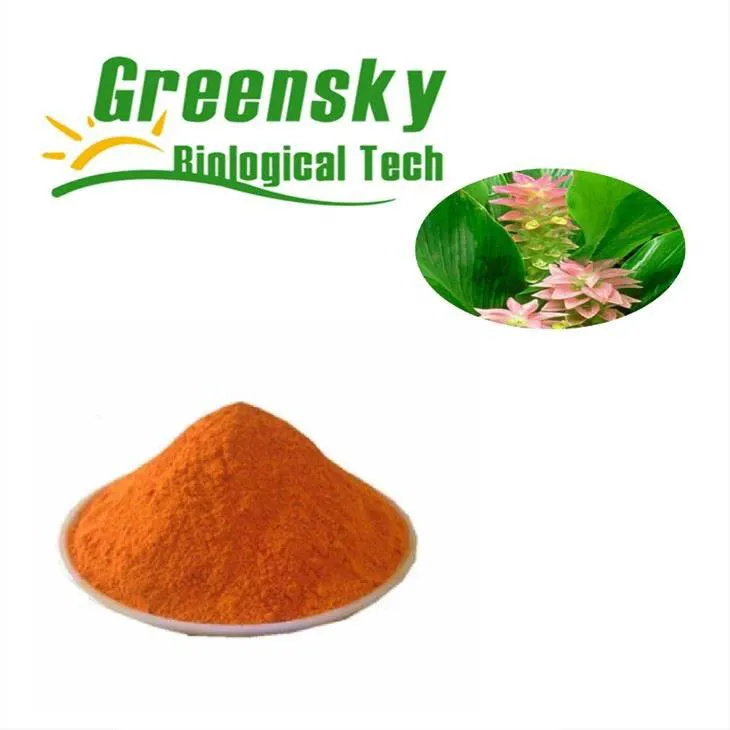- 0086-571-85302990
- sales@greenskybio.com
Heart Health Benefits of Curcumin: A Comprehensive Review
2024-07-04

1. Introduction
Heart disease has been a predominant global health issue, accounting for a significant number of morbidity and mortality cases worldwide. Curcumin, a natural compound derived from the turmeric plant (Curcuma longa), has recently attracted considerable attention due to its potential health - promoting properties, especially in relation to heart health. This review aims to provide a comprehensive overview of the impact of Curcumin on various aspects of heart function.

2. Endothelial Function Protection
2.1 The Role of Endothelium in Heart Health
The endothelium, which lines the inner surface of blood vessels, plays a crucial role in maintaining cardiovascular health. It is involved in the regulation of blood vessel tone, prevention of platelet aggregation, and inhibition of leukocyte adhesion. Dysfunction of the endothelium is an early event in the development of cardiovascular diseases such as atherosclerosis.2.2 How Curcumin Affects Endothelial Function
Curcumin has been shown to improve endothelial function through multiple mechanisms. Firstly, it increases the production of nitric oxide (NO) in endothelial cells. NO is a key molecule that promotes vasodilation, thereby reducing blood pressure and improving blood flow. Curcumin activates the endothelial nitric oxide synthase (eNOS) enzyme, which is responsible for NO synthesis.Secondly, curcumin has antioxidant properties. Oxidative stress is a major contributor to endothelial dysfunction. By scavenging free radicals such as superoxide anions, curcumin reduces oxidative damage to the endothelium. This helps to preserve the normal structure and function of the endothelial cells.
Finally, curcumin has anti - inflammatory effects. Inflammation in the endothelium can disrupt its normal function. Curcumin inhibits the activation of inflammatory pathways, such as the nuclear factor - kappa B (NF - κB) pathway. By reducing inflammation, curcumin helps to maintain a healthy endothelial environment.

3. Anti - platelet Activity
3.1 Platelet Aggregation and Heart Disease
Platelet aggregation is a key process in the formation of blood clots. Excessive platelet aggregation can lead to the blockage of coronary arteries, resulting in heart attacks. In patients with heart disease, there is often an increased tendency for platelet aggregation.3.2 Curcumin's Anti - platelet Effects
Curcumin has been demonstrated to possess anti - platelet activity. It inhibits platelet activation and aggregation by interfering with various signaling pathways involved in platelet function. For example, curcumin can block the action of thromboxane A2, a potent inducer of platelet aggregation.Moreover, curcumin may also affect platelet - endothelial interactions. By reducing platelet adhesion to the endothelium, curcumin helps to prevent the formation of thrombi on the vessel wall. This anti - platelet activity of curcumin may contribute to its cardioprotective effects.

4. Modulation of Cardiac Muscle Cell Behavior
4.1 Cardiac Muscle Cell Physiology
Cardiac muscle cells are specialized cells that are responsible for the contraction and relaxation of the heart. Their normal function is essential for maintaining proper heart rhythm and pumping ability. Any disruption in the behavior of cardiac muscle cells can lead to heart failure or arrhythmias.4.2 Curcumin's Influence on Cardiac Muscle Cells
Curcumin has been found to modulate the behavior of cardiac muscle cells in several ways. It can protect cardiac muscle cells from oxidative stress - induced damage. Similar to its effect on endothelial cells, curcumin's antioxidant properties help to neutralize free radicals that can damage cardiac muscle cells.Curcumin also has anti - apoptotic effects on cardiac muscle cells. Apoptosis, or programmed cell death, can occur in cardiac muscle cells under various pathological conditions such as myocardial infarction. By inhibiting apoptosis, curcumin may help to preserve the number and function of cardiac muscle cells.
In addition, curcumin may regulate the intracellular calcium handling in cardiac muscle cells. Calcium is an important ion involved in the contraction and relaxation of cardiac muscle cells. By modulating calcium handling, curcumin can potentially improve the contractility and relaxation of the heart.

5. Clinical Evidence
5.1 Human Studies
Several human studies have investigated the effects of curcumin on heart health. In some clinical trials, curcumin supplementation has been shown to improve endothelial function in patients with cardiovascular risk factors such as hypertension and diabetes. For example, a study found that patients who took curcumin supplements for a certain period had increased levels of NO in their blood, indicating improved endothelial function.There have also been studies looking at the anti - platelet effects of curcumin in humans. Although the results are not entirely consistent, some studies suggest that curcumin may reduce platelet aggregation in certain populations.
5.2 Limitations of Clinical Evidence
However, the clinical evidence regarding curcumin's heart health benefits is not without limitations. One major limitation is the relatively small sample sizes in many of the studies. This may limit the statistical power of the findings and make it difficult to draw definitive conclusions.Another issue is the variability in the formulation and dosage of curcumin used in different studies. Curcumin has low bioavailability, and different formulations (such as curcuminoids with or without piperine as an absorption enhancer) may have different effects. Standardizing the formulation and dosage of curcumin in future studies will be important for more reliable results.

6. Conclusion
In conclusion, curcumin shows great potential in promoting heart health through its effects on endothelial function protection, anti - platelet activity, and modulation of cardiac muscle cell behavior. Although there are some limitations in the current clinical evidence, the pre - clinical studies provide strong mechanistic support for its cardioprotective properties. Future research should focus on conducting larger - scale clinical trials with standardized curcumin formulations and dosages to further clarify its role in cardiovascular health promotion. Overall, curcumin represents a promising natural compound for the prevention and treatment of heart diseases.
FAQ:
1. What is curcumin?
Curcumin is a natural compound that is found in the spice turmeric. It has a bright yellow color and has been used in traditional medicine for centuries. It is known for its antioxidant, anti - inflammatory, and anti - microbial properties.
2. How does curcumin protect endothelial function?
Curcumin can protect endothelial function through multiple mechanisms. It reduces oxidative stress by scavenging free radicals, which helps maintain the integrity of endothelial cells. It also modulates the production of nitric oxide, a molecule crucial for vasodilation and normal endothelial function. Additionally, curcumin can inhibit inflammatory pathways that are often associated with endothelial dysfunction.
3. What is the significance of curcumin's anti - platelet activity in heart health?
Platelet activation and aggregation play a crucial role in the development of cardiovascular diseases such as thrombosis. Curcumin's anti - platelet activity helps prevent excessive platelet aggregation. By inhibiting platelet activation, it reduces the risk of blood clot formation in the arteries, which can lead to heart attacks or strokes.
4. How does curcumin modulate cardiac muscle cell behavior?
Curcumin can modulate cardiac muscle cell behavior in several ways. It may influence the electrophysiological properties of cardiac cells, helping to maintain normal heart rhythm. It can also affect the growth and survival of cardiac muscle cells, potentially protecting against cell death and promoting cardiac repair in cases of injury or disease.
5. Are there any side effects of curcumin in relation to heart health?
When used in normal doses, curcumin is generally considered safe for heart health. However, in some cases, high - dose curcumin supplementation may cause mild side effects such as gastrointestinal discomfort. Also, people with certain medical conditions or those taking specific medications should consult their healthcare providers before starting curcumin supplementation, as it may interact with some drugs.
Related literature
- The Role of Curcumin in Cardiovascular Diseases: A Review of the Evidence"
- "Curcumin and Heart Health: Molecular Mechanisms and Therapeutic Potential"
- "Beneficial Effects of Curcumin on Endothelial Function in Cardiovascular Diseases"
- ▶ Hesperidin
- ▶ Citrus Bioflavonoids
- ▶ Plant Extract
- ▶ lycopene
- ▶ Diosmin
- ▶ Grape seed extract
- ▶ Sea buckthorn Juice Powder
- ▶ Fruit Juice Powder
- ▶ Hops Extract
- ▶ Artichoke Extract
- ▶ Mushroom extract
- ▶ Astaxanthin
- ▶ Green Tea Extract
- ▶ Curcumin
- ▶ Horse Chestnut Extract
- ▶ Other Product
- ▶ Boswellia Serrata Extract
- ▶ Resveratrol
- ▶ Marigold Extract
- ▶ Grape Leaf Extract
- ▶ New Product
- ▶ Aminolevulinic acid
- ▶ Cranberry Extract
- ▶ Red Yeast Rice
- ▶ Red Wine Extract
-
Lavender Extract
2024-07-04
-
Soy Extract
2024-07-04
-
Mulberry Extract
2024-07-04
-
Longan Extract
2024-07-04
-
Avocado Extract Powder
2024-07-04
-
Acerola Juice Powder
2024-07-04
-
Polygonum multiflorum extract
2024-07-04
-
Oat Straw Extract Powder
2024-07-04
-
Sophora Flavescens Root Extract
2024-07-04
-
Konjac Powder
2024-07-04





















